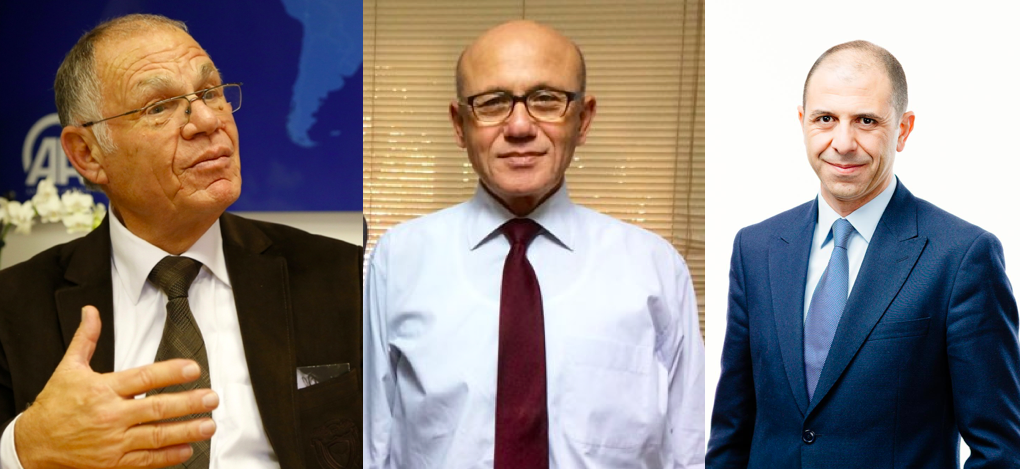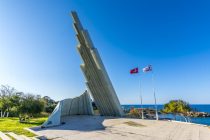On 24 April, 2004, Turkish Cypriots voted in favour of uniting the island of Cyprus in historic referendums on what was dubbed the ‘Annan Plan’. But the United Nations blueprint for a federal solution remained just that after Greek Cypriots overwhelmingly rejected it – and were rewarded with European Union membership days later. In the second of a three-part series marking the 15thanniversary of one of the most divisive dates in the modern history of Cyprus, Eltan Halil speaks to three of the key Turkish Cypriot players of the time about their role, the aftermath of the result and what lies ahead.
For some, it is a date that now lives on in infamy. It is the date that the Turkish Cypriot desire to be accepted into the international fold, after being ground down by decades of Greek Cypriot-imposed embargoes, was spurned. It is the date that Turkish Cypriots and the international community were “betrayed” and “cheated” by Greek Cypriot politicians. It is the date that marked the start of broken promises made to the Turkish Cypriots to put an end to their isolation.
On 24 April, 2004, Turkish Cypriots in North Cyprus and Greek Cypriots in South Cyprus went to the polls in separate, simultaneous referendums, unprecedented in the history of the island.
They were being asked to make a simple choice: vote “Yes” or “No” on a plan put forward by the late UN Secretary-General Kofi Annan.
Both sides had to vote in favour of the plan for it to be implemented, before the island was due to join the EU on 1 May, 2004 – but crucially its acceptance was not a condition for the island’s entry to the bloc.
Two-thirds of Turkish Cypriots endorsed the Annan Plan but three-quarters of Greek Cypriot voters, urged on by their then leader Tassos Papadopoulos, rejected it
The result meant the Greek Cypriot side entered the EU while the Turkish Cypriots were left out in the cold.
A key turning point had come in the run-up to the ballot when a tearful Mr Papadpoupolos, addressing his people, said that the Annan Plan would “not provide for reunification but the permanent separation of the two communities,” adding: “I received a state; I will not deliver a community.”
His comments left former EU enlargement commissioner Günter Verheugen fuming. “I feel cheated by the Greek Cypriot government,” he said at the time.
The Annan Plan – which ran to almost 10,000 pages – would have seen a “new state of affairs” emerge.
A “United Republic of Cyprus” would have been created, with a federal government composed of two constituent states “both largely running their own affairs”.
In exchange, large swathes of territory, such as the town of Güzelyurt (Morphou to the Greek Cypriots), would have been handed over by the Turkish Cypriots, creating a new wave of refugees.
“The choice is not between this settlement plan and some other magical or mythical solution . . . the choice is between this settlement and no settlement,” Mr Annan ominously said as he presented his final plan on the night of 31 March, 2004, in the Swiss resort of Bürgenstock.
The final version put to the people of Cyprus was the result of a series of negotiations from 2002 onwards, a process that was kick-started in 1999.
That was the year Turkey was declared a candidate state for EU membership, while the Greek Cypriots were told that they too could join – with or without a political settlement in Cyprus.
Efforts to reach a solution in Cyprus intensified in 2002 when, with the Copenhagen summit in December of that year, the European Council approved Cyprus’s accession to the EU on 1 May 2004, along with nine other countries.
An initial deadline of February 2003 was given by the UN for a settlement in Cyprus, to prevent a divided island entering the EU and before the inking of the EU Accession Treaty, which Mr Papadopoulos signed later that year.
Acceptance of the Annan Plan by both sides would have brought an end to decades of division dating back to December 1963 and the economic embargoes imposed on the Turkish Cypriots, particularly after the establishment of the Turkish Republic of Northern Cyprus (TRNC) in 1983.
By the time of the Annan Plan referendums, many Turkish Cypriots saw a solution to the Cyprus problem as the only way out of their economic woes.
Crucially Turkey, under the new AKP government led by Recep Tayyip Erdoğan, also saw the resolution of the Cyprus issue as key to its own aspirations of EU membership.
TRNC Founding President Rauf Denktaş, who had for so many years enjoyed the unrivalled support of his people and of Turkey, and who led the “No” campaign against the Annan Plan, found himself sidelined.
Indeed it was pro-Annan Plan Mehmet Ali Talat, the Turkish Cypriot opposition leader who later became TRNC Prime Minister and then President, who was at Bürgenstock, not Mr Denktaş, as the main representative of the Turkish Cypriots.
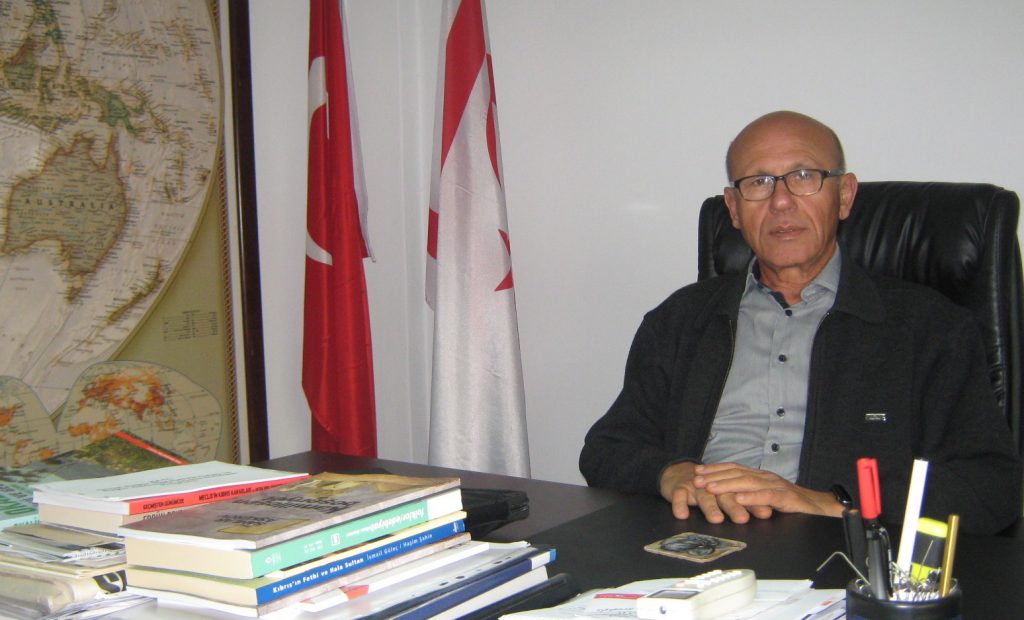
Referring back to 2002, when Mr Annan presented the first version of his plan, Mr Talat says: “Turkish Cypriots started to organise unprecedented [rallies], demonstrations.
“The United Nations was expecting an agreement on the main issues of the Annan Plan, and only the property [issue] was going to be left for a few months later.”
Chatting over herbal tea in his office, a stone’s throw from the Museum of Barbarism in the Dereboyu district of Lefkoşa, Mr Talat says that most of the contributions to the original Annan Plan had come from the Greek Cypriot side and, “up to an extent”, the Turkish Foreign Ministry.
“Except Denktaş of course. Denktaş was, by definition, against a solution so he didn’t [submit] any contribution.”
Turkish Cypriot and Greek Cypriot leaders were invited by Mr Annan to Copenhagen for a “latest discussion” and to “sign the agreement”.
“Denktaş didn’t go,” Mr Talat recalls. “Actually, he couldn’t go because he was quite ill at the time… He sent the [then] Foreign Minister [Tahsin Ertuğruloğlu], who was by definition again against a solution, and they failed.
“So, the Secretary-General said ‘Okay, let’s finalise it by February 2003’ because he knew that . . . the [EU] Accession Treaty was going to be signed.”
Those efforts failed, Mr Talat notes, while in the meantime Mr Papadopoulos was elected as the new Greek Cypriot leader.
“Papadopoulos gave an image that he was he pro-solution, but actually he was not.”
A visit to Cyprus by Mr Annan followed at the end of February 2003, where he invited Messrs Papadopoulos and Denktaş to a meeting in The Hague the next month in another bid to thrash out a deal so it could be voted on by the public on 30 March, 2003.
“The leaders went there, Denktaş said ‘no’, Papadopoulos said the time was not enough [to reach an agreement], but he didn’t say ‘no’,” remembers Mr Talat.
“He didn’t say ‘yes’ [either], but he gave the image that he was going to say yes if Denktaş said yes.”
Mr Annan then “shut down the centre of negotiations in Cyprus”, according to Mr Talat, while leaving his plan on the table “if the Cypriots want it”.
The development was met with dismay among some Turkish Cypriots, says Mr Talat, leading to a “pressure cooker-like” atmosphere in the TRNC.
On 23 April, 2003, in a bid to relieve that pressure, Mr Denktaş decided to open the border between North and South, allowing Greek Cypriots and Turkish Cypriots to cross to each other’s side for the first time in almost 30 years.
“Turkish Cypriots were deeply disappointed by Denktaş’s decision,” says Mr Talat. “In order to prevent any unrest and take the pressure out of the pressure cooker, they tried to change the agenda.”
Mr Talat says that the surprise decision had been “advised by Turkey” and “accepted reluctantly” by Mr Denktaş who was “on the verge of losing all his control on the community”.
A general election in the TRNC in December 2003 saw a huge swing away from the pro- Denktaş National Unity Party (UBP) and the Democrat Party (DP), led by Rauf Denktaş’s son Serdar, to Mr Talat’s Republican Turkish Party (CTP), which narrowly emerged as the biggest party in Parliament.
Mr Talat entered into a coalition with DP and became the new PM, bringing the Annan Plan back on to the agenda.
“Although they [DP] were sceptical, they were seeing what was going on and Turkey’s desire for a solution,” he says.
“Because Turkey, for its own interests, wanted to proceed to European Union membership and they knew that without a Cyprus solution that this would be impossible.”
With the clock ticking down to Cyprus’s accession to the EU, a frantic few months of new negotiations began, including a trip to New York to meet Kofi Annan, where Mr Talat, describing himself as the “main player” at that time, says he accepted the Secretary-General’s arbitration role.
“Papadopoulos was expecting a problem from the Turkish Cypriot side so that the negotiations would explode,” he recounts.
“So he had to act in positive way, and he played that role very reluctantly, that was visible.”
The talks culminated in the Bürgenstock summit, where Mr Annan stepped in to complete the blueprint that was eventually voted on after six weeks of negotiations failed to broker an agreement.
Mr Talat was accompanied there by Serdar Denktaş and Ergün Olgun, a former top aide to Rauf Denktaş who had been heavily involved in the Annan Plan process.
“The European Union member countries and the EU itself were very much concerned about getting an agreement before the enlargement date in 2004,” he says. “That was what induced them to try to encourage the two sides to reach an agreement… and the time was running out, because the two sides were not making enough progress.”
Speaking at his family-owned luxury furniture store not far from Mr Talat’s office, Mr Olgun says that the Turkish Cypriot side was “very upset” that the first version of the Annan Plan was presented while Mr Denktaş was in hospital “because the time schedule ahead was based on the Greek Cypriot application [to join the EU]”.
“It was a unilateral application without the consent of the Turkish Cypriot side, who objected to it because they had not been involved in the negotiations,” Mr Olgun states.

“The Turkish Cypriot side also objected to the fact that the United Nations had become a hostage of the European Union, working on the basis of their timescale… the Greek Cypriot objective was to integrate the Turkish Cypriot community into the Republic of Cyprus, which they had usurped and turned into a Greek Cypriot republic, whereas the Turkish Cypriot objective was to establish a new partnership republic.”
By 2004 the situation had changed, however, after the AKP came to power in Turkey, which Mr Olgun sees as a key factor.
“Recep Tayyip Erdoğan’s government was eager to see a settlement in the Cyprus issue and Turkey was supportive of the UN process at this time,” he says.
A “three-phase” process followed, at the end of which Mr Annan “filled in the blanks” of his plan before they were put to separate referendums.
A person who played a key role in the negotiations process was Professor Kudret Özersay, now the leader of his own political party, the People’s Party (HP), and the TRNC’s current Deputy Prime Minister and Minister of Foreign Affairs.
He was a member of the Turkish Cypriot delegation that travelled to Bürgenstock and part of the “core negotiation group” that met in the buffer zone in Cyprus.
“I was also participating in the committees established by the United Nations,” he says sitting in his office at the Ministry of Foreign Affairs in Lefkoşa, flanked by the flags of Turkey and the TRNC and with a portrait of the founder of modern Turkey, Atatürk, displayed proudly above him.
“I was leading, at that time, the UN international treaties committee for a comprehensive settlement in Cyprus,” he recalls.
Prof Özersay’s main role was to check that such treaties were in “compliance” with the “comprehensive settlement criteria” before they became binding on the envisaged United Republic of Cyprus.
“Our mission, at that time, given by [Rauf] Denktaş, was to do our best to make it better…We didn’t have that luxury to discuss it politically or put a political position.
“I was working with them [the TRNC Presidency], based on a contract. I was the international law adviser to the President.
“We worked together, with the negotiator, and the President, and when the time came to go to the [Bürgenstock] summit, we went there together with [Mr Talat] and the Deputy Prime Minister, Serdar Denktaş at that time.
“We went to Switzerland … and tried to make it [the Annan Plan] better. And I believe in the fifth version it became better than the previous versions.
“But, personally, after all these processes were completed, I made my own analysis, as an international law professor, and of course I came to the conclusion that it was going to be a very complicated structure… and there was a serious risk to have a kind of a failed state … after the entering into force of the settlement.”
Prof Özersay says his conclusions were partly based on time he spent in Bosnia Herzegovina in the 1990s following the signing of the Dayton peace accord.
“In 1997 I worked there for democratic elections to be conducted and I realised they managed to solve the Bosnian problem on paper, but in practice that was not the case.
“It’s one thing to talk about the deal on paper, but another thing to talk about the consistency between the circumstances, or conditions of the reality, and sentences on the paper. There was a serious gap between the two.”
He says that the tens of thousands of people who would have been uprooted under the Annan Plan to “repair the pain” of Greek Cypriots displaced in 1974 would have created a new “pain” and “trauma”, a flaw he said he was later recognised by the European Court of Human Rights.
While the three men I spoke to for this article did not pinpoint the result of the referendums on a single cause, they were all in agreement that the EU membership factor had shaped both sides’ votes, but in different ways.
Mr Talat believes that the reason why 65% per cent of Turkish Cypriot voters were in favour of the Annan Plan was because EU membership was a “very attractive carrot”, not because of a strong desire to unite with the Greek Cypriots.
“The main attraction for the Turkish Cypriots was to join the European Union and become European citizens,” he says.
“The attraction of the EU is a bit lower now, but it has not ended… That is the reason that Turkish Cypriots want a solution, not [because] they love the Greek Cypriots.”
In contrast the EU’s pledge to admit the Greek Cypriot side regardless meant there was less incentive for them to vote “Yes”, agrees Mr Talat.
“They have the international recognition, they are a member of the European Union, so why should they share power with us?”
Mr Talat says that while the result of the twin referendums did not come as a surprise, particularly after he failed to convince the Greek Cypriot communist party AKEL “not to say no”, it was still a “very big disappointment”.
“When the first results came out, we just collapsed,” he recollects. Asked if he felt “betrayed” by Greek Cypriot politicians, Mr Talat continues: “Yes, definitely, definitely. All the Cyprus solution powers were betrayed, not only the Turkish Cypriots but the Greek Cypriots as well.
“Nobody was expecting AKEL to say ‘No’.”
Mr Talat also recalls the “negative reaction” of the then Turkish PM Erdoğan. “I cannot say [he was] disappointed because I didn’t know what they [the Turkish government] were actually thinking at that time.
“But they were ready for the next efforts of… lifting the isolation, etc. From that time onwards, we started to work on that issue because the international community was also very disappointed, the European Union was very disappointed.”
Mr Olgun was with Rauf Denktaş on the night the referendum results came in where there was disappointment – at the Turkish Cypriot “Yes” vote – but also “relief” on the part of Mr Denktaş that his people had “escaped from another plan” because of the “greediness of the Greek Cypriot side”.
“Many of us knew that there would be a ‘No’ vote from the Greek Cypriot side, although the international community was expecting a ‘Yes’ because they had been deceived… For me it wasn’t a surprise and not for the President either,” recounts Mr Olgun.
“He [Rauf Denktaş] was not surprised, but disappointed that the Turkish Cypriot side had not realised the deficiencies of the Annan plan and that the whole process was based on the Greek Cypriot application to the European Union … and that the Turkish Cypriots would in fact be integrated, because of that accession, into the Greek Cypriot Republic of Cyprus.”
Mr Olgun says that the Turkish Cypriots endorsed the Annan Plan following a “huge amount of PR” directed at them by the EU, which had assumed that a “Yes” vote from the Greek Cypriots was “a given”.
In the aftermath of the referendums, the EU vowed to “put an end to the isolation of the Turkish Cypriot community” but plans to introduce direct trade with North Cyprus were never implemented, with Greece and the Greek Cypriot side – both now part of the EU – able to influence Brussels.
Mr Talat, who later embarked on an ultimately futile international campaign to lift the economic embargoes on the TRNC and call for direct flights to and from Ercan airport, is adamant that the Turkish Cypriots – and Turkey – still benefitted by supporting the Annan Plan.
Foreign investment – sparking a property boom in the TRNC – poured into Turkey and North Cyprus as a result, he claims.
“The image of Turkish Cypriots changed dramatically,” he says. “Because before the Annan Plan referendum, Turkish Cypriots were thought of as preventing an agreement, but that changed… Now nobody is criticising the Turkish Cypriots for the lack of a solution and Turkey is no longer criticised.
“But in the long-term, because of the unfairness of the international laws, which are created for sovereign states, the negative climate… has come back.
“We are isolated, we are not in the international community. Now, we are not accused by the international community, we are now not prevented as much before from international relations, but we couldn’t, for example, break the international isolation of football.”
Mr Talat believes that a united Cyprus would have survived to this date, had the Annan Plan been accepted by both sides.
“We don’t have many problems with the Greek Cypriots, even now,” he adds.
Fifteen years on, the prospects for a settlement in Cyprus seem as remote as they have ever been.
Hopes of recognition of the TRNC, however, are also just as remote, leaving Mr Talat to make the following assessment:
“That [recognition] is impossible, because there is the United Nations Security Council decision of 1984 declaring the TRNC as ‘illegal’… So if one country recognises you, only that country has international relations with you.
“If two more recognise you, you will have international relations with two more countries, that’s all. Recognition is an arduous task.”
He also dismisses the model of Kosovo – which has so far been recognised by around 100 states including Turkey, the United States, the United Kingdom, France and Germany – declaring that even that would “not be enough” for the TRNC, because it would still not be a member of the UN or EU.
With the “Yes, be annem” rallies now becoming a fading memory, what will happen next?
“It will continue as it is,” Mr Talat concludes. “No solution, no recognition, no EU membership. For how long? We don’t know.
“The Turkish Cypriots will try to survive, what can they do? They should keep their identity, a Turkish Cypriot identity, because in the long-term new efforts will come to the fore. There is no other possibility.”
Prof Özersay believes that the Turkish Cypriots and the international community should now use “leverage” over the Greek Cypriots to bring about a resolution.
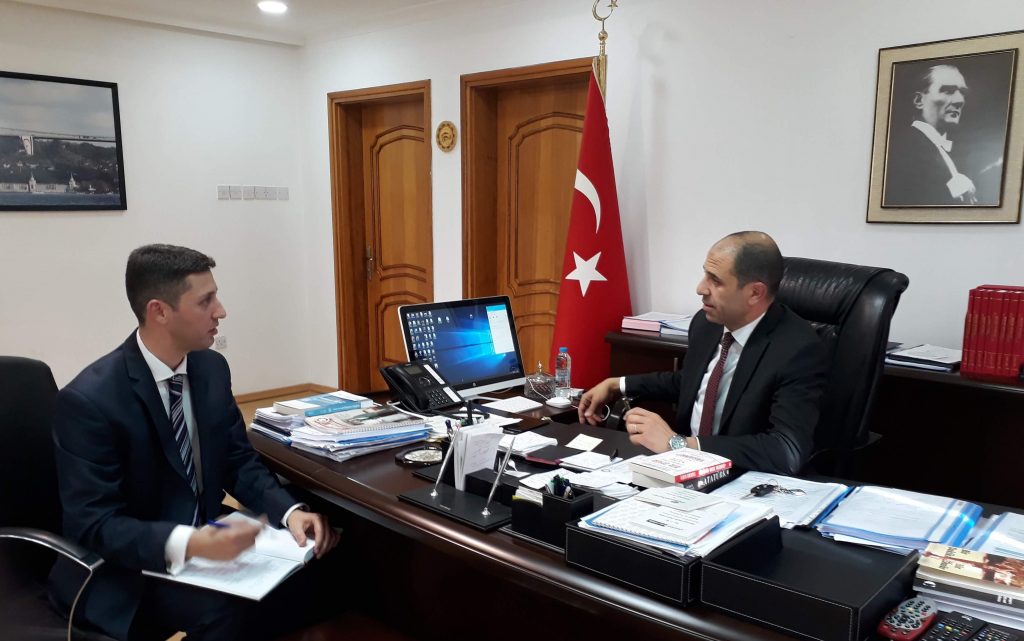
“For example, if international actors start questioning the existing legal status of the Greek Cypriot side, as they did in the case of Taiwan, in the case of nationalist China in the 1970s, when they made a shift and derecognised nationalist China…this will have a triggering effect and this will be a serious leverage on the Greek Cypriot side to question their existing positions and act reasonably.
“Second, lifting the isolations of the Turkish Cypriots, and enabling the Turkish Cypriots to become a meaningful trade partner… not only dependent on the Turkish economy… will be another leverage…
“The third one, is questioning the existence of the UN [peacekeeping] force [UNFICYP] in Cyprus, because in the minds and hearts of the Greeks Cypriots, mainly, and for some other actors, UNFICYP is the image representing the status quo on this island… and the comfortable situation of the Greek Cypriot side.”
Prof Özersay adds that the international community should also address the issue of natural gas finds in the seas surrounding Cyprus, which the Greek Cypriot side have laid claim to, by “not repeating the mistake” of admitting the South of Cyprus to the EU without a solution.
“[They should say to the Greek Cypriots that] on this issue of hydrocarbons, we are going to make it conditional for you to first go and get the consent of the Turkish Cypriots or resolve the Cyprus problem, whatever is possible, in order for you to be able to bring this resource to the international markets. Now, if this step is taken, this is another leverage,” he explains.
“So, in the absence of these types of alternative steps, or leverages, I don’t think that there will be a mutually hurting stalemate in this region and on this island.
“And in the absence of a mutually hurting stalemate, there is no reason for the Greek Cypriot side to share power and prosperity with the Turkish Cypriots… Are we going to wait only for the steps that will be taken, or that may be taken, by the international actors to create a leverage? I don’t think so.
“In the case of hydrocarbons, again, we are going to take certain countermeasures which will be a kind of leverage on the Greek Cypriots and on international companies as well, because the stability in the region is necessary for the companies to seriously invest in this field, and not to take risk.”

Prof Özersay says that Turkish Cypriots should also work to improve the economy and quality of life in North Cyprus and “improve our capacity to have certain relations… with the other actors” as another form of “leverage”.
As for the chances of a solution in the future, he thinks that “with respect to methodology, time, and the different political actors, a bi-communal bi-zonal federal structure, which is based on sharing power and prosperity, is exhausted”, calling in the meantime for “step-by-step cooperation” with the Greek Cypriots in areas such as the environment, tourism and the economy.
“This approach does not exclude even the federal model, but in 20 or 30 years, maybe – it’s not a categorical rejection of a specific model – it is more realistic to start from the bottom up… creating a confidence … and encourage us to increase the areas of competence that we can cooperate in the future.
“The other option, if this type of cooperation is not going to take place, is a trade relationship to develop, not only between the Turkish Cypriot state and the Greek Cypriot state and their markets, but between different actors in the eastern Mediterranean.
“This will trigger a kind of an interdependence between the actors and one opening for that can be removing all the restrictions and isolations over the Turkish Cypriot airports and seaports… but at the same time, the Turkish market to be opened to the Greek Cypriot producers.”
Prof Özersay warns that if his suggestions for leverage or cooperation do not work then there is a “risk of tension” in the region.
“It’s not only something that is going to be limited to the island because, whether we like it or not, which I don’t like, this area is a kind of a battlefield of different big actors, including Russia, including the United States.
“If any objective person looks at the number of the warships and others surrounding this island… one can understand what I mean by that potential risk. No one knows what’s going to happen in that sense.
It’s a concern shared by Mr Olgun.
“It may escalate, but I do not think there will be a major sea confrontation, because at that point, everybody would see the consequences,” he says.
“But at one point, the two sides, all parties, will have to agree on what to do next, peacefully, through negotiation.
Mr Olgun concludes that the Turkish Cypriot side needs to “rethink what is happening in Cyprus”, particularly in light of the hydrocarbons issue.
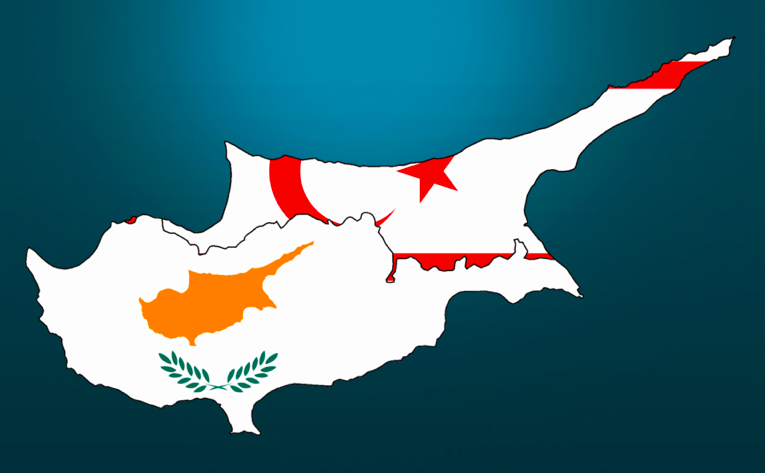
“We have not had a divorce in Cyprus,” he notes. “We have not had a sharing of the resources. Yes, the TRNC was declared, but the Greek Cypriots have refused to accept separation…They refused to get together in the same house with the Turkish Cypriots in 2004.
“Since those [hydrocarbon] resources are still co-owned, there is a need for the engagement of the two sides to work together for stability, and proper exploitation of those resources… and also the need for international companies to operate in a peaceful environment.”
On the question of recognition of the TRNC, he makes this final point:
“Under these circumstances, it’s going to happen by default. The Turkish Cypriot side and Turkey are going to establish and start their own hydrocarbon exploration activities in their own areas… This is going to lead eventually, by default, to full separation of the two sides…
“[But] don’t think that immediately, all of a sudden, you come up tomorrow and say, ‘I seek recognition’. You have to, I think, prepare the ground for that. And that comes in stages.
“My preference is for the two sides to sit down and say that we have not been able to establish a partnership, what are our options? What shall we do?”


